Cast Basalt Tile Lined Pipes
Durable pipes with basalt tile lining for corrosion resistance.

Steel-lined composite cast basalt chute is used for the self-flow transport of materials, including thickened bottom plates and side wall plates set on both sides of the bottom plate.
It is suitable for conveying slurry or suspended fluid with a hardness lower than Mohs 6. It is wear-resistant, low in resistance, and achieves a self-flow effect with a reasonable slope. The steel-lined composite chute can be customized in size and length according to on-site requirements, making installation convenient.
Our newly unveiled Steel-Lined Composite Cast Basalt Chute is a breakthrough solution designed for the efficient and seamless self-flow transportation of materials. This innovative chute features a one-piece structure comprising a reinforced bottom plate and sidewalls, ensuring enhanced structural strength and minimizing deformation risks caused by impacts.
Integrated Design: The bottom plate and sidewalls seamlessly form the core structure of the chute, mitigating stress concentration and reducing the likelihood of deformation after impacts.
Smooth Working Surface: The working face of the chute boasts a smooth and curved design, optimizing material flow for increased efficiency.
Reinforcement Layer: The underside of the connection points between the bottom plate and sidewalls is fortified with a dedicated reinforcement layer, enhancing overall structural integrity.
Symmetrical Sidewalls: The chute is intelligently designed with two symmetrical sidewalls on either side of the bottom plate, ensuring a balanced and robust structure.
Improved Structural Strength: The one-piece design significantly enhances the structural strength of the chute.
Reduced Deformation: By addressing stress concentration, this chute minimizes the risk of deformation, particularly after impact.
Enhanced Material Flow: The smooth and curved working surface facilitates optimal material flow, improving overall operational efficiency.
This innovative Steel-Lined Composite Cast Basalt Chute redefines material handling by combining the robustness of steel lining with the wear-resistant properties of cast basalt. Its one-piece structure ensures superior strength, making it an ideal choice for applications demanding both durability and impact resistance.
Experience the future of material handling with our Steel-Lined Composite Cast Basalt Chute – where strength, efficiency, and innovation converge.
Our Steel-Lined Composite Cast Basalt Chute finds versatile applications in industries requiring durable, wear-resistant, and impact-resistant material handling solutions. Common sectors include power generation, metallurgy, mining, and chemical processing.
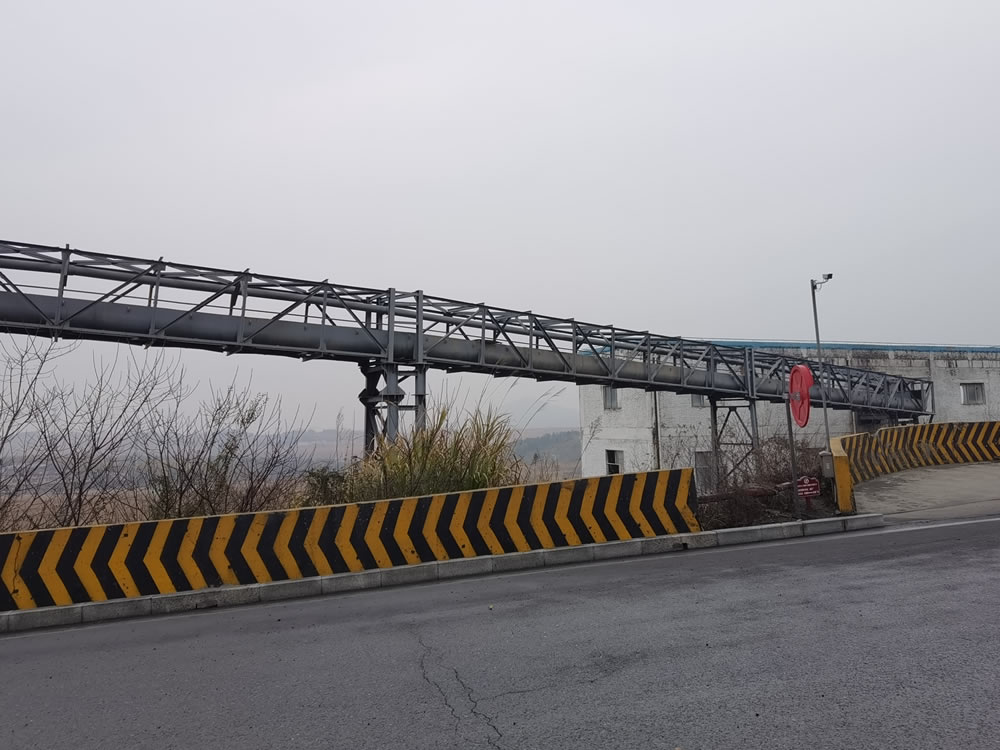
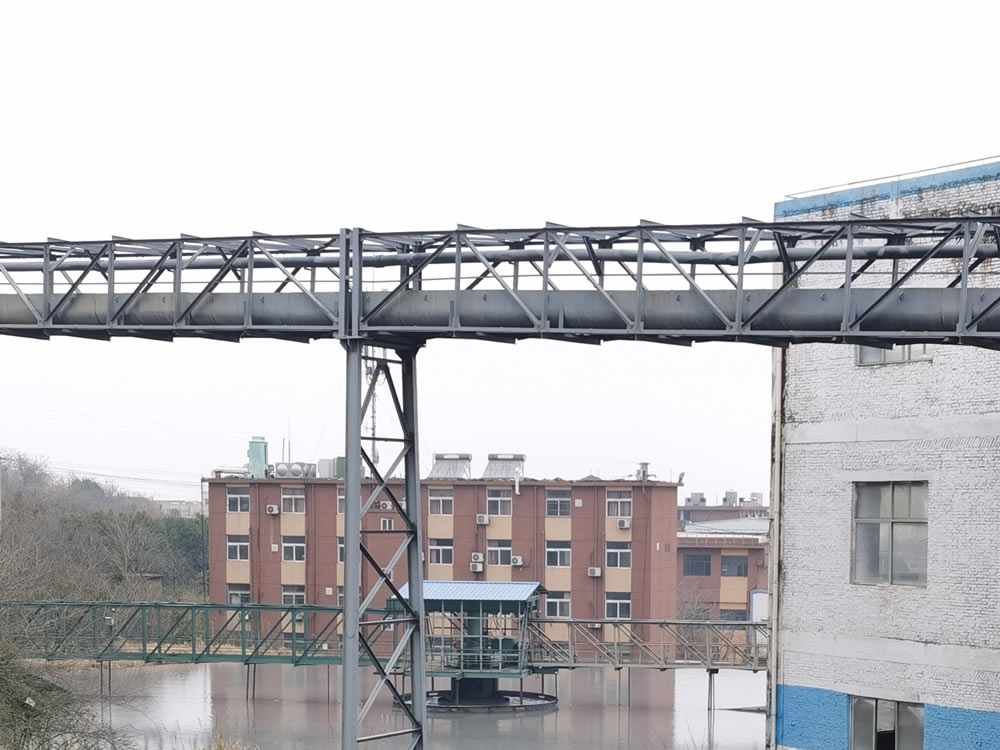

Comparison of Ceramic lines with few other materials under standard conditions :
| Material | Thickness(mm) | Approx life ( Months ) |
|---|---|---|
| Mild Steel | 10 | 3-5 |
| Cast Iron | 20 | 6-8 |
| Ni-Hard | 20 | 12-14 |
| Cast Basalt | 30 | 20-25 |
| Ceramic | 10 | 35-40 |
Hard & Compact Smooth & Inner Withstands High-Abrasion & Corrosion In any of the process industries especially Sled and Cement corrosion and abrasion lead to significant downtime of the plant. Further, the useful life or the equipment itself may get impaired because of the high abrasive nature of the materials being used. Thus, ‘wear mechanism’ results in hut down, replacement, etc., which is costly, resulting in loss to tilt: tunic of millions of dollars.
The bend radius should be minimum 3 times of the nominal bore. At discharge end of each bend, cast basalt lined straight pipe of length 5 to 12 times the nominal bore must be used.

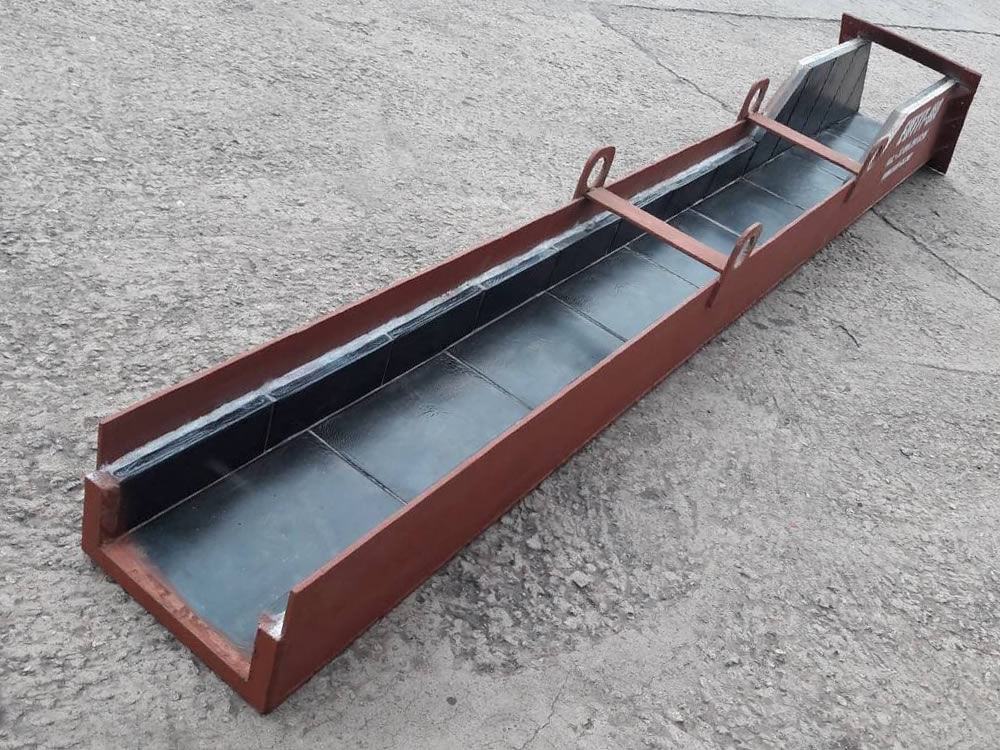
Lining trays, chutes, and pipes with cast basalt offers substantial advantages across various industrial applications.
Cast basalt lining is formed by casting molten basalt into specific shapes, resulting in a highly robust and wear-resistant material.
The use of cast basalt lining offers significant advantages in various industrial applications, providing solutions for wear resistance, chemical resistance, and thermal stability. There are two main applications of cast basalt lining:
Customization: Cast basalt tiles are tailored to specific equipment configurations, allowing for custom sizing and shaping.
Wear Resistance: Exceptional resistance to abrasion, erosion, and impact ensures prolonged equipment life by protecting against wear and tear.
Corrosion Resistance: Cast basalt is highly resistant to corrosion from acids, alkalis, and various chemicals, making it suitable for corrosive environments.
High Temperature Resistance: Cast basalt tiles can withstand high temperatures, making them suitable for applications involving hot gases or materials.
Non-Magnetic Properties: The absence of metal and non-magnetic properties is advantageous in processes relying on magnetism, such as magnetic separators.
Smooth Inner Surface: Cast basalt lining in pipes and nozzles provides a smooth inner surface, minimizing material buildup and ensuring efficient flow, reducing the risk of clogging.
Abrasion Resistance: Superior resistance to abrasion in pipe and spigot linings extends service life, resulting in reduced maintenance and replacement costs.
Chemical Resistance: Cast basalt is chemically inert and resistant to a wide range of chemicals, making it suitable for applications with corrosive substances.
Thermal Insulation: Excellent thermal insulation properties of cast basalt pipe linings are beneficial in applications requiring temperature control.
The overall advantages of cast basalt lining include its ability to reduce equipment downtime, enhance operating efficiency, and provide long-term protection against wear and corrosion. It's crucial to note that the specific type of cast basalt lining and its installation method may vary based on the equipment's application and requirements.
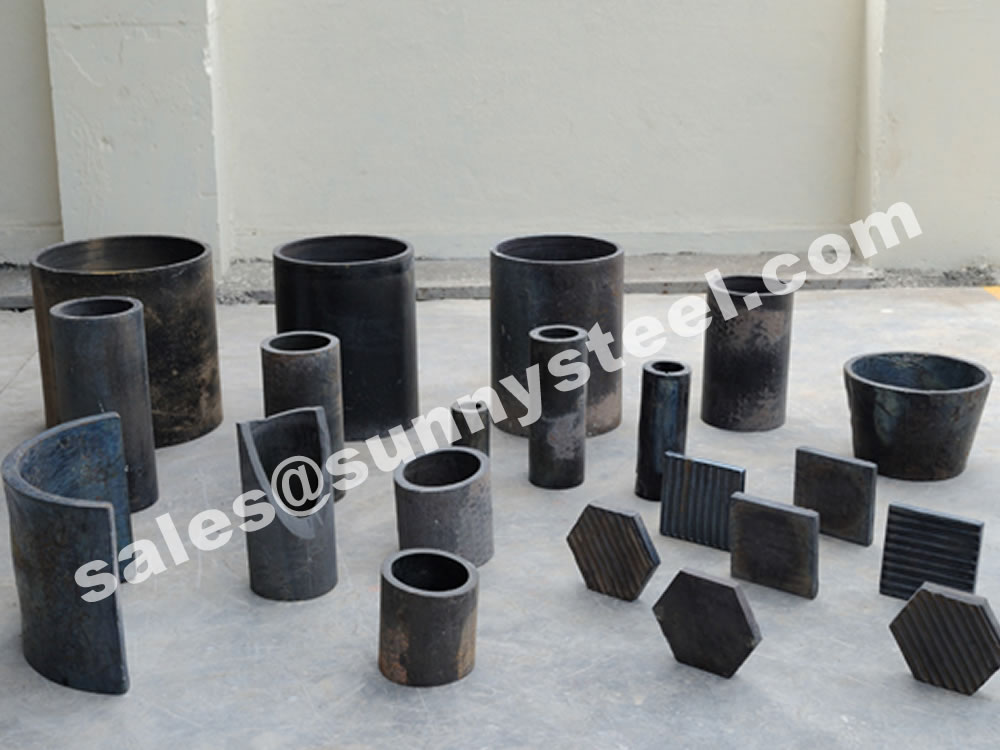
Cast basalt is a mineral of exceptionally high abrasion resistance, unlimted resistance to moisture, high compressive strength and resistance to virtually all acids and alkalis and is completely corrosion free.
Cast basalt is produced by melting selected natural basalt broken into sizes of 20-50 mm in shaft furnaces at tempreatures around 1,300C, following by casting at which the metled basalt forms uniforms pherolithic crystals hence producing its typical physical propertics, in particular its exceptional hardness and wear-resitance.
Cast basalt reaches a value of hardness of 8( min ) on the Moh's hardness scale. for comparision : the highest value10is only attained by dimonds. by virtue of these properties,the silicate cast basalt provides outstanding protection against abrasion and scrubbing.
however, it is marked by asertain sensitivity ti impacts.Under Normal services conditions, cast basalt withstands tempratures up to approx.+ 350C or-40C. However Cast basalt sholud not be subjected ti temprature shocks.
Sizes : Cast basalt produces are manufactured as tiles, from pieces and segments. straight pipes are spun-cast, available for nominal bores of 32 to 600 mm with the wall thickness ranging from 20 to 30mm and a standard lenght of 500mm.samller nominal bores of straight pipes, pipe segment for radill of 40 to 3,000mm of vatrious angles, as well as special formpiece linings are pre dominately sand-cast. The standard wall-thickness is 20mm. depending on the respective quantity, steel moulds can also be used, the wall thickness in those cases usually being 30 to 40mm.
Cast basalt lined pipe can be mainly used as abrasive material and ash handling system like chute slip trough, funnel, silos, a variety dust catcher, revolving-flow machine, various scraper transport planes, all the feeder liner. Laying the ground all types of chemical plants, it can be for lining picking tank or storage of corrosive substance of the storage room.
According to customer requirements along with cast basalt production technology and we can offer various specifications and various shape to meet client's need.
Friction Resistance : As more material is passed over Cast Basalt it gets polished up thereby reducing friction further. Cast Basalt improves in service after getting polished. Wetting also improves its performance in practical applications.
Impact Resistance : Direct Impact Resistance at 90 degree is low like all other ceramics, but it can be increased with proper installation by reducing the angle of impact. Cast Basalt is the best wherever sliding abrasion exists. Moreover, external impact strength of composite basalt pipe (enclosed in M.S. Shell) is always more than that of bare Ni-hard Pipe.
Chemical Resistance : Cast Basalt is almost absolutely acid/alkali resistant (except Hydrofluoric Acid) and hence corrosion resistant.
Weight and Sizes : Basalt Tiles are available in regular shape square of 200 x 200 x 30 mm thick, weighing approx. 90 kg/sq m; whereas bends and pipes are lined using Basalt Cylinders of various standard sizes from 50NB upto 500NB.
Temperature : Cast Basalt withstands temperature up to 4500 oC.
Design Aspects
Refining basalt to a finely crystallised glass ceramic, SunnySteel’s cast basalt wear resistant material provides an extremely durable, long-lasting lining for static plants bearing large volumes of abrasive and/or corrosive matter.
Supplied as both a pipe and tile lining solution, cast basalt is ideally suited for wet material handling applications with lower impacts, such as coal chutes, ash sluiceways, ash pipelines at power stations and hydraulic granulated slag or sand conveying. Basalt delivers high resistance to wear corrosion and temperatures up to approximately 400 °C.
Cast basalt pipe adopt foam packaging, then in accordance with the specifications to put them into wooden cases, sometimes them can be directly loaded into the compartment or container.













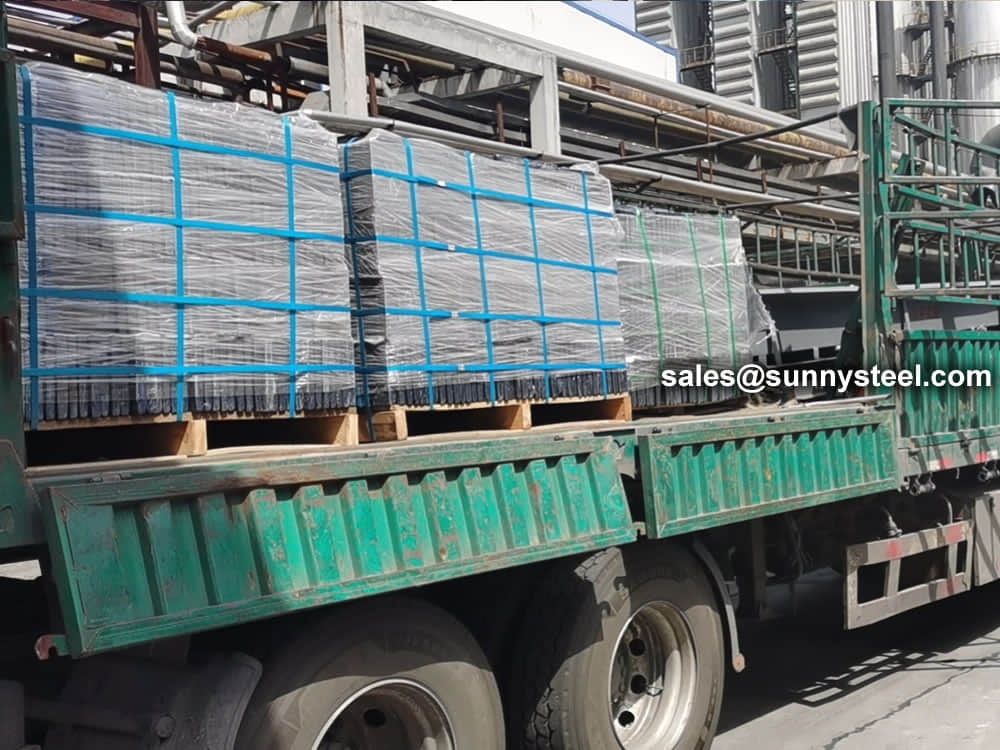
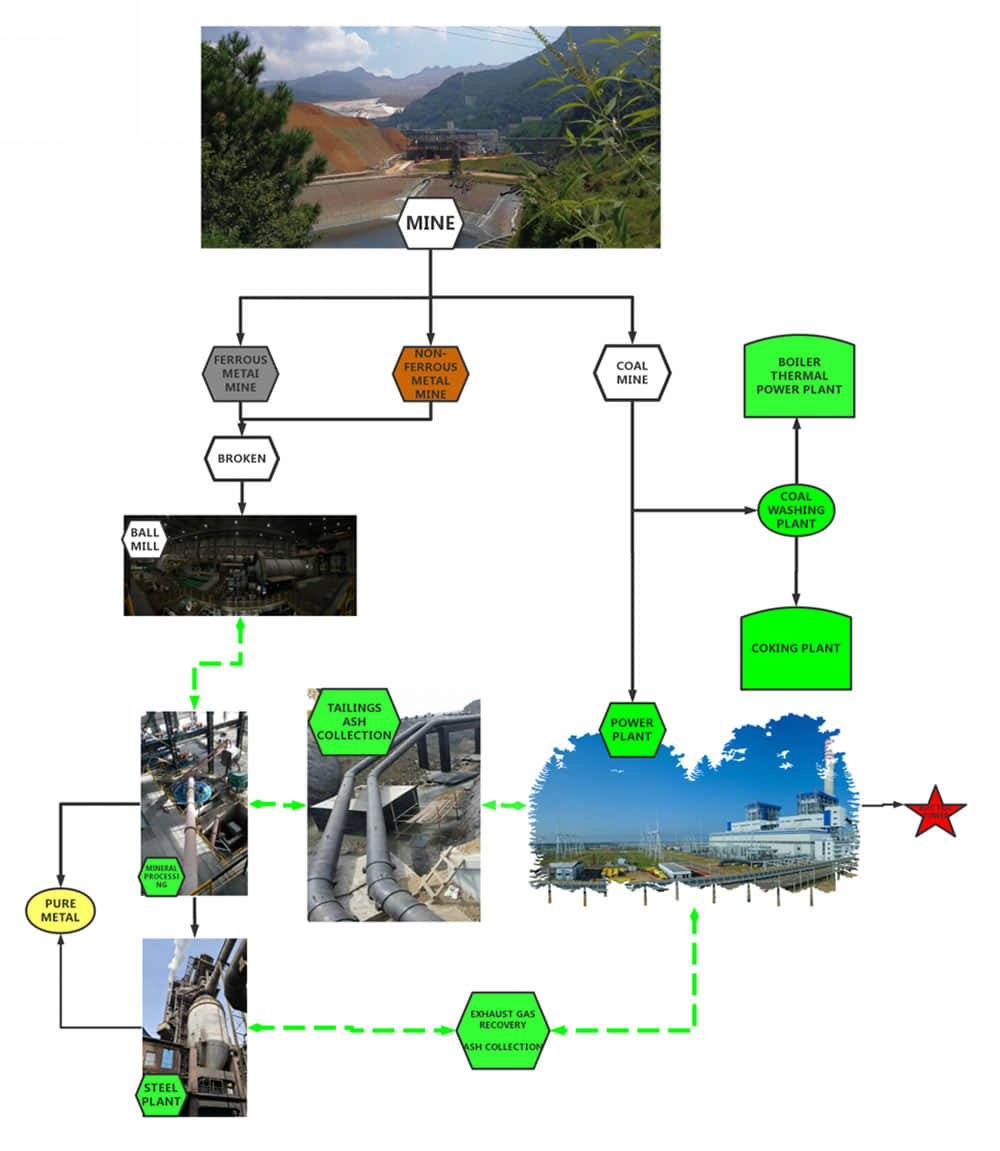
Cast basalt pipe is a kind of silicate crystalline material that has been produced and processed. It uses natural rock (basalt, diabase and other basic rocks) or some industrial waste slag as the main raw material. After melting, pouring, crystallization and annealing and other processes. Cast stone has excellent wear resistance and corrosion resistance. Cast stone products mainly include cast stone slabs, cast stone pipes, cast basalt lined pipes, jacketed cast stone pipes, cast stone wear-resistant expansion joints, cast stone wear-resistant valves, cast stone powder and various wear-resistant and resistant cast stone powders as raw materials. Putty slime, etc. Has been widely used in electric power, mining, coal, metallurgy, chemical, construction and other industrial sectors severely worn and corroded parts and equipment.
the cast basalt lined pipe is composed of the inner lined cast stone pipe, the outer steel pipe and the cement mortar filling layer between the two. It integrates the wear resistance and corrosion resistance of the cast stone pipe, the toughness of the steel pipe and the consolidation of the cement mortar. In one. It improves the adaptability of the Product to various complex working conditions. At the same time, the use of cement mortar as a filler can make the inner surface of the steel pipe in an alkaline medium, and the surface of the steel pipe will produce a purification film, which can prevent corrosion. It is resistant to wear, corrosion, and high pressure, and is safe and convenient to transport.
Cast basalt lined pipes are divided into straight pipes, curved pipes, tee (cross) pipes, reducing pipes, etc.
The diameter series of the cast stone composite elbow is the same as that of the cast stone composite straight tube, and its turning radius and center angle are made according to user requirements.
Non-standard specifications of cast basalt lined pipes can be made according to customer’s technical requirements. For large-diameter cast basalt lined pipes with a nominal diameter of more than 800mm, different cements are usually used to paste the cast stone plates on the inner wall of the well-processed steel pipes according to the operating conditions of the pipe fittings to form an integrated cast basalt lined pipe. Its advantages are good wear resistance, wide application range, small size limitation of pipe fittings, and low cost of pipe fittings.
Natural gas is used for melting basalt stone in melting furnace. Natural gas is currently very clean and environmentally friendly fuel. No any pollution. To the customer requirements choose environmental protection material that is a good choice.
The product processed from cast basalt is a new type of silicate crystalline material. Using natural rock (basic database, shale, etc.) or industrial waste as the main raw material components, smelting, casting, heat treatment and other processes are regularly arranged, crystalline, hard, and fine-textured metal industrial materials. Casting basalt has an excellent high abrasion and high resistance. Abrasiveness. Corrosion resistance.
Lorem ipsum dolor sit amet, consectetur adipiscing elit. Sed ultrices elit eget sem luctus interdum. Morbi a sapien ut dolor placerat consequat. Nulla facilisi. Vivamus at lacinia elit. Phasellus at faucibus lacus. Duis in enim pharetra, lobortis neque id, ultricies sapien. Sed finibus, arcu vitae suscipit vehicula, purus lectus vestibulum tortor, vel semper justo erat eu risus. Nulla ac odio ac turpis blandit porttitor vitae vitae metus. Fusce commodo lacinia leo quis dictum.
Friction Resistance – As more material is passed over Cast Basalt it gets polished up thereby reducing friction further. Cast Basalt improves in service after getting polished. Wetting also improves its performance in practical applications.
Impact Resistance – Direct Impact Resistance at 90 degree is low like all other ceramics, but it can be increased with proper installation by reducing the angle of impact. Cast Basalt is the best wherever sliding abrasion exists. Moreover, external impact strength of composite basalt pipe (enclosed in M.S. Shell) is always more than that of bare Ni-hard Pipe.


Chemical Resistance Cast Basalt is almost absolutely acid/alkali resistant (except Hydrofluoric Acid) and hence corrosion resistant.
Weight and Sizes - Basalt Tiles are available in regular shape square of 200 x 200 x 30 mm thick, weighing approx. 90 kg/sq m; whereas bends and pipes are lined using Basalt

When you partner with Sunny Steel, you can stop worrying about meeting deadlines thanks to our responsive and timely service. You'll also say goodbye to unnecessary shopping around. Instead, you'll get white glove service from an expert who understands your needs and can get you the materials you need quickly.
